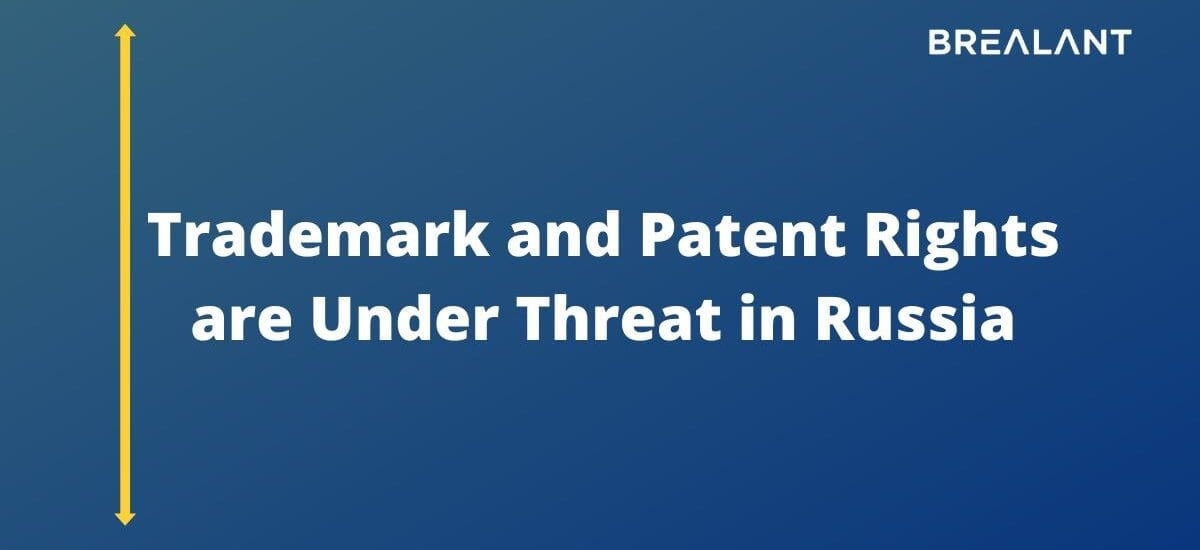
The Russian state-run media outlet TASS stated at the beginning of March that Russia was threatening to revoke the trademark and patent rights of businesses that were terminating operations there or were involved with “sanctioned goods.”
Russia is known for its rich history, vast expanses of wilderness, and extensive mineral and energy resources. But the country’s reputation as a bastion of stability and business prosperity may be in jeopardy – largely due to intellectual property (IP) rights. Russia has been slowly drifting away from the Western world since the fall of the Soviet Union. This grassroots re-alignment has caused major strains on the country’s economy, social fabric, and judicial system. The dramatic change has prompted multinational companies to reassess their operating plans in Russia, sometimes with disastrous results. IP rights play a critical role in driving creativity, innovation and international protection for brands. When a company invests in new technologies or IP, it creates jobs and sustains economic growth. And while Russia has made some progress in recent years, it still lags behind many developed countries when it comes to protecting trademark rights and patent rights. This puts domestic businesses at a disadvantage and puts global companies at risk of piracy and legal challenges. There are several steps that multinationals can take to protect themselves from potential IP infringements in Russia. By doing so, they can maintain their reputation as responsible actors and ensure that their investments have a good chance of success.
The rules of substantive and procedural law as outlined in part IV of the Russian Civil Code, which deals with IP rights, are fully complied with by the operation of the Russian intellectual property system. It means that those businesses should not be concerned about the unfair, politically motivated, or biased treatment of their intellectual property rights by executive Russian IP bodies like the Russian IP body (now known as “Rospatent”) or IP Court when they are forced to consider withholding their businesses in Russia due to political decisions made by their governments or for other commercial reasons.
But this should not be taken to mean that no proactive steps are necessary to protect IP rights holders’ interests in Russia. Instead, IP owners should ensure that their IP, especially trademarks, is highly protected by employing all available legal options as given by Russian law, including potential legal challenges against third parties who violate trademark filings or registrations, as the case may be. Such measures might also be necessary to prevent the dilution of well-known trademarks in the event that a third-party file a trademark application for a mark that is similar to the mark in question but that covers a variety of goods that are unrelated to the goods of the true trademark owner. Any application must be published by Rospatent as soon as it is filed, regardless of whether it shows symptoms of bad faith behavior or not. If the application is filed, it is accepted for consideration if it complies with the formal requirements, and after the formal stage comes the substantive examination stage, which involves further verification of the application’s compliance with the registrability requirements.
As is evident from current practice in both administrative and judicial situations, all legal procedures for the protection and enforcement of rights created by Russian law remain fully in effect with regard to trademarks and trademark rights. This in turn indicates a stable state of things in this area as well as the consistent adherence of competent bodies to the legal frameworks and processes for the protection and enforcement of rights. There is now a small list of people who are allowed to submit a trademark application in accordance with the Russian Civil Code. Legal entities and sole proprietors are the only applicants for trademark applications. Recent changes to the Russian Civil Code, however, will permit self-employed and natural persons to file trademark applications as they are permitted to engage in some types of entrepreneurial activity without registering as individual entrepreneurs as of June 29, 2023. It is reasonable to suppose that such a provision may encourage the development of personal brands, which enable the more active promotion of goods and services for such individuals moreover, international protection for the brands.
If patent rights and trademark rights in Russia are under threat, this may lead to a decrease in innovation and economic growth in the country. It could also have a negative effect on foreign investment in Russia. As this is an issue that concerns everyone involved in business in Russia – from investors to companies – it is important that we raise awareness of these risks so that we can address them head-on. Risks will always be associated with intellectual property, mitigate it with professional advice. Brealant TM is a dedicated firm that deals with IP-related aspects as well as trademark and patent registration. Visit the website and know more about the portfolio of services.

